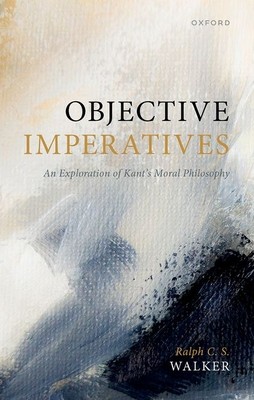
- We will send in 10–14 business days.
- Author: Ralph C S Walker
- Publisher: Oxford University Press, USA
- ISBN-10: 0192857061
- ISBN-13: 9780192857064
- Format: 14.5 x 20.8 x 3.1 cm, hardcover
- Language: English
- SAVE -10% with code: EXTRA
Reviews
Description
Kant held the moral law to be an objective imperative, an entity in its own right. It carries with it prescriptive force, in parallel to other principles of pure reason, like those of logic and mathematics. Objective imperatives therefore do not derive their authority from any other source, such as common consensus or the will of God. In Objective Imperatives, Ralph C. S. Walker seeks to show that this is a highly defensible view: Kant's Categorical Imperative, properly understood, is broadly right. The key to it is rationality, and not universality, which functions only as an approximate test. Often, Kant sets the matter out badly, and most of the common objections to him can be shown to be due to misunderstandings. A morality that gives us an objective imperative does appear incompatible with the determinism to which Kant commits himself, but Walker argues that this appearance is misleading.
EXTRA 10 % discount with code: EXTRA
The promotion ends in 5d.17:38:05
The discount code is valid when purchasing from 10 €. Discounts do not stack.
- Author: Ralph C S Walker
- Publisher: Oxford University Press, USA
- ISBN-10: 0192857061
- ISBN-13: 9780192857064
- Format: 14.5 x 20.8 x 3.1 cm, hardcover
- Language: English English
Kant held the moral law to be an objective imperative, an entity in its own right. It carries with it prescriptive force, in parallel to other principles of pure reason, like those of logic and mathematics. Objective imperatives therefore do not derive their authority from any other source, such as common consensus or the will of God. In Objective Imperatives, Ralph C. S. Walker seeks to show that this is a highly defensible view: Kant's Categorical Imperative, properly understood, is broadly right. The key to it is rationality, and not universality, which functions only as an approximate test. Often, Kant sets the matter out badly, and most of the common objections to him can be shown to be due to misunderstandings. A morality that gives us an objective imperative does appear incompatible with the determinism to which Kant commits himself, but Walker argues that this appearance is misleading.


Reviews